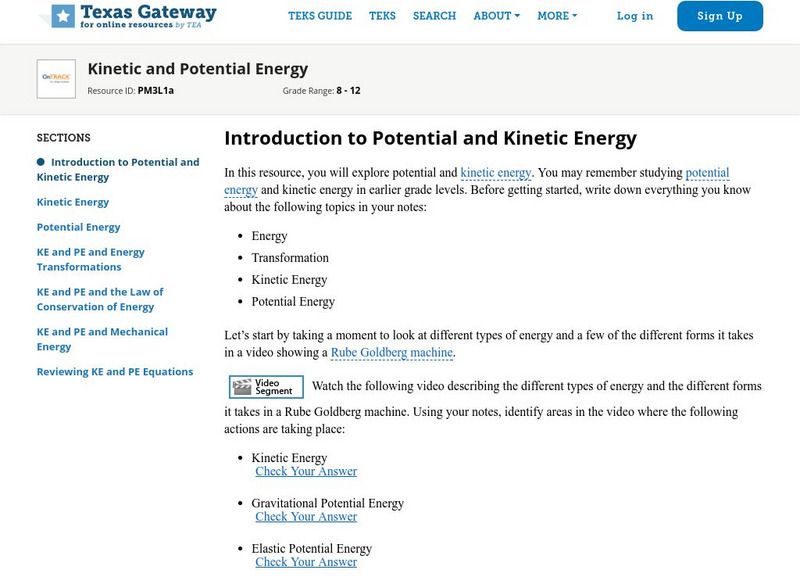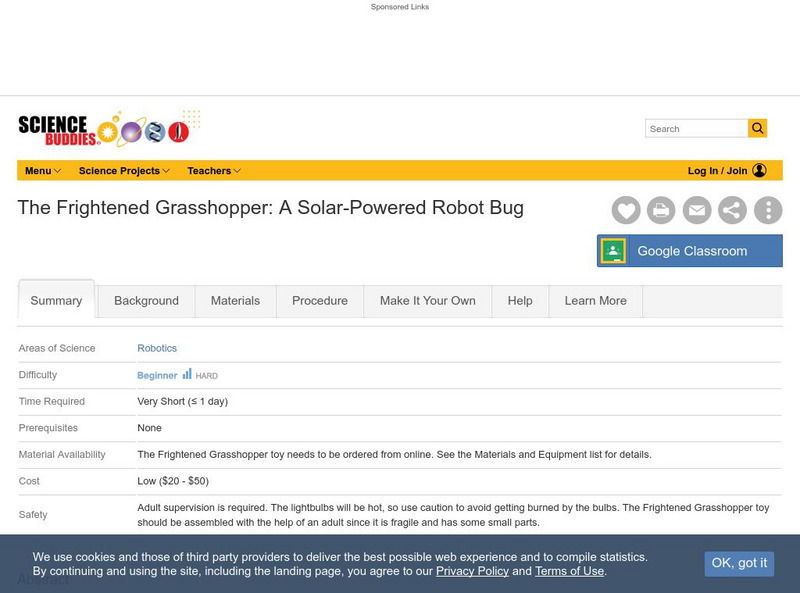Hi, what do you want to do?
TeachEngineering
Teach Engineering: Energy Skate Park
This activity focuses on the conservation of energy solely between gravitational potential energy and kinetic energy. Students work with a virtual laboratory set at a skate park. They make predictions of graphs before they use the...
TeachEngineering
Teach Engineering: Energy on a Roller Coaster
This activity utilizes hands-on learning with the conservation of energy and the interaction of friction. Students use a roller coaster track and collect position data. The students then calculate velocity, and energy data. After the...
TeachEngineering
Teach Engineering: Energy Storage Derby and Proposal
In Activity 5, as part of the Going Public step, students demonstrate their knowledge of how potential energy may be transferred into kinetic energy. Students design, build and test vehicle prototypes that transfer various types of...
TeachEngineering
Teach Engineering: Hybrid Vehicle Design Challenge
This module is written for a first-year algebra-based physics class, though it could easily be modified for conceptual physics. It is intended to provide hands-on activities to teach the overarching concept of energy, as it relates to...
TeachEngineering
Teach Engineering: Move It!
Mechanical energy is the most easily understood form of energy for students. When there is mechanical energy involved, something moves. Mechanical energy is a very important concept to understand. Engineers need to know what happens when...
TeachEngineering
Teach Engineering: Imagine Life Without Friction
Learners are introduced to the concept of inertia and its application to a world without the force of friction acting on moving objects. When an object is in motion, friction tends to be the force that acts on this object to slow it down...
TeachEngineering
Teach Engineering: Physics of Roller Coasters
Students explore the physics utilized by engineers in designing today's roller coasters, including potential and kinetic energy, friction, and gravity. First, students learn that all true roller coasters are completely driven by the...
TeachEngineering
Teach Engineering: Pushing It Off a Cliff
Lesson 2 moves into the Research and Revise step and focuses on the conservation of energy solely between gravitational potential energy and kinetic energy. Young scholars start out with a virtual laboratory, and then move into the notes...
TeachEngineering
Teach Engineering: It's Tiggerific!
In Lesson 3, as part of the Research and Revise step, students investigate potential energy held within springs (elastic potential energy). Class begins with a video of either spring shoes or bungee jumping. Students then move on into...
TeachEngineering
Teach Engineering: Latex and Hybrids: What's the Connection?
An engineering challenge where students create small-scale models from which their testing results could be generalized to large-scale latex tubing for a hydraulic accumulator. They brainstorm ideas about how latex can be used in a...
Texas Education Agency
Texas Gateway: Introduction to Potential and Kinetic Energy
Energy is the ability of a system to do work. That system may be batteries powering an electronic game system or windmills capturing wind energy to power a city. When an object or an organism does work, energy is transferred to another...
Texas Education Agency
Texas Gateway: The Great Egg Drop!
Which came first: the chicken or the egg? One might ask the same question about potential and kinetic energy. Make observations while you watch the video below. Think about what scientific conclusion you could make from your...
Physics Classroom
The Physics Classroom: The Work Energy Theorem
This page explores the quantitative relationship between work and mechanical energy in situations in which there are no external forces doing work. It is a basic analysis of situations in which mechanical energy is conserved. Examples...
NBC
Nbc Learn: Science of Golf
NBC Learn, in partnership with the United States Golf Association, uncovers the science, technology, engineering and math behind the game of golf. For lesson plans provided by the National Science Teachers Association, open the video and...
Georgia State University
Georgia State University: Hyper Physics: Kinetic Energy
This site from Georgia State University Physics Department defines kinetic energy and compares and contrasts it with other forms of energy. Provides an equation and links to further, more-detailed information.
Chem4kids
Chem4 Kids: Thermochemistry
This site provides a general overview of thermochemistry, the division of chemistry that deals with temperature in chemical reactions. Content explores what heat and cold really are, the heat and energy around you, and a bit about Lord...
American Chemical Society
Middle School Chemistry: Heat, Temperature, and Conduction
Learners observe, describe, and draw a model on the molecular level, showing how energy is transferred from one substance to another through conduction.
PBS
Pbs Kids: Design Squad Challenge: Paddle Power [Pdf]
Hands-on challenge to design and build a paddle boat that moves across water using a rubber band as its power source. Provides full list of materials with ideas on how to design, build, test, and redesign it if necessary. Activity...
OpenStax
Open Stax: Chemical Reactions
This site provides an overview of the role of energy in chemical reactions.
Texas Education Agency
Texas Gateway: Ready for an Energy Makeover?
Sometimes these are changes that happen routinely in the natural world, and sometimes these are "makeovers" where human creations transform energy into a specific form that serves a specific need. Either way, we call these changes energy...
Texas Education Agency
Texas Gateway: Kinetic and Potential Energy
Given diagrams, illustrations or relevant data, students will identify examples of kinetic and potential energy and their transformations.
City College of New York
City Technology: Fantastic Elastic
Explore engineering technology with this unit. Students will study how to design and execute two types of homemade vehicles using elastic.
Concord Consortium
Concord Consortium: Molecular Workbench Showcase: Heat and Temperature
A tutorial that explores the concepts of heat and temperature, the transfer of energy between substances, the relationship of temperature and the movement of atom, and thermal radiation. The tutorial includes animations, interactive...
Science Buddies
Science Buddies: Project Ideas: Electronics and Solar Energy With a Robot Bug
In this science fair project, use the "frightened grasshopper" solar-powered toy to explore how solar energy is converted into kinetic energy. The Science Buddies project ideas are set up consistently beginning with an abstract,...





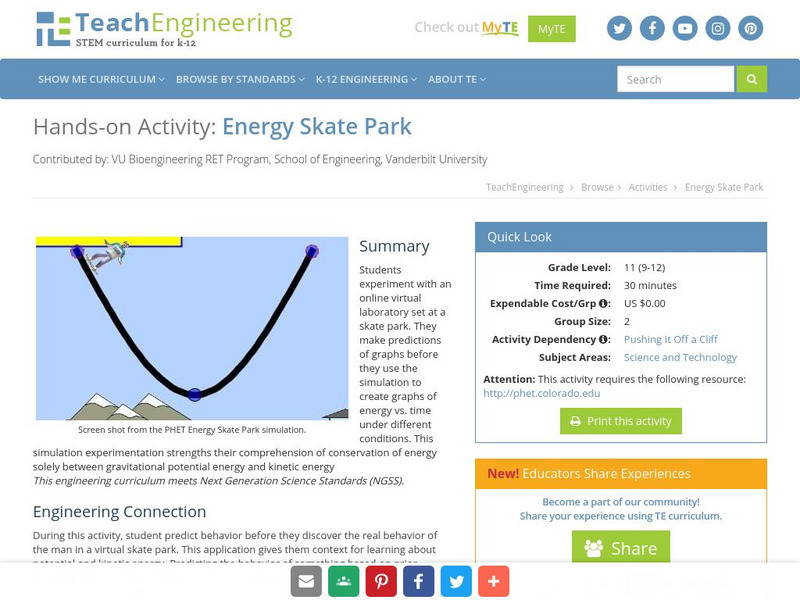
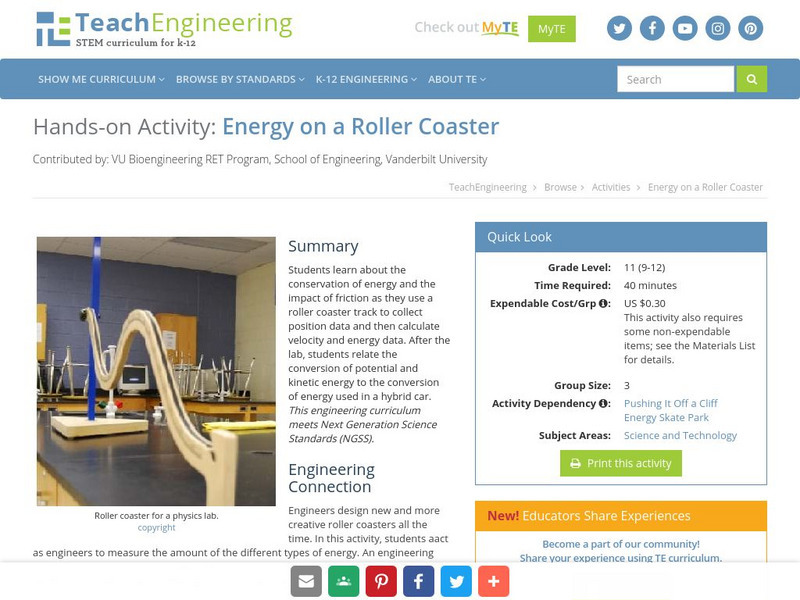
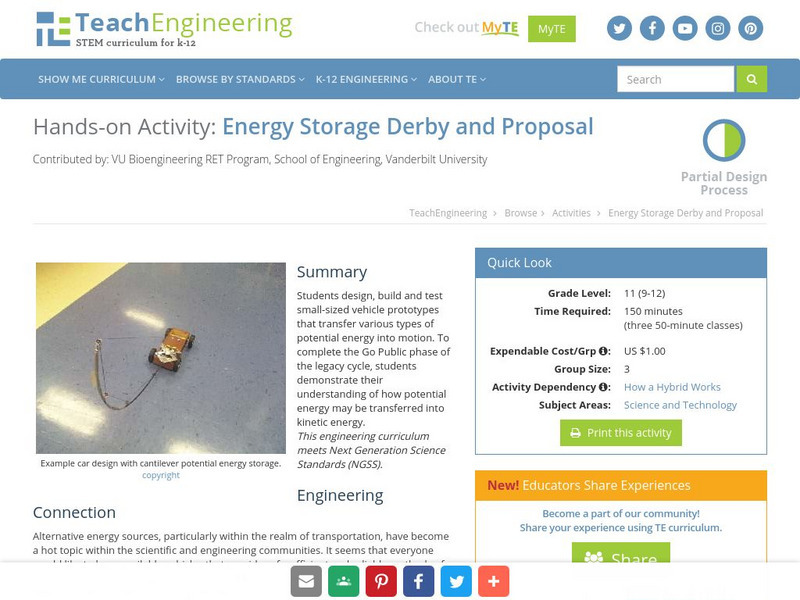

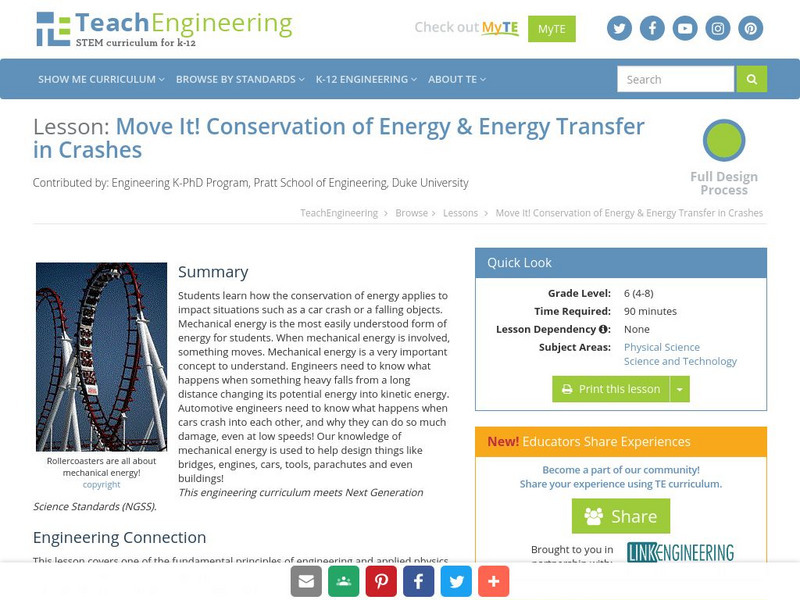

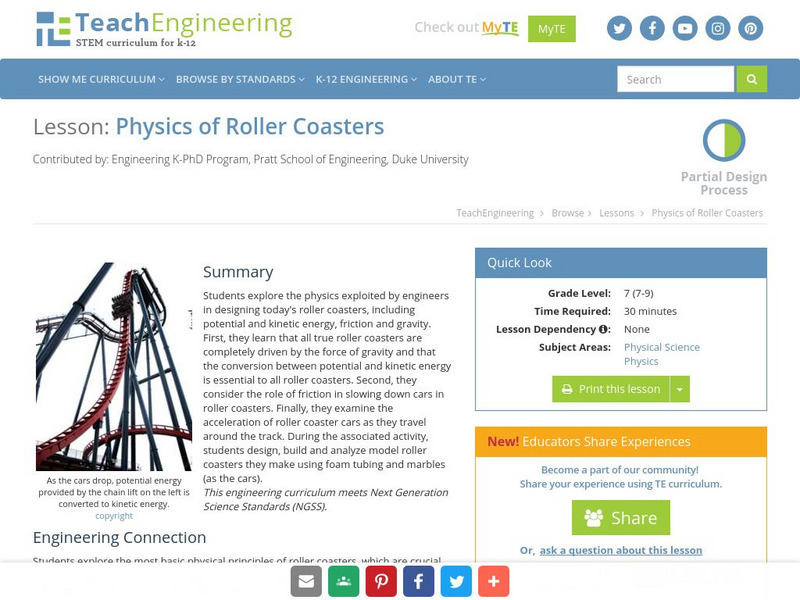
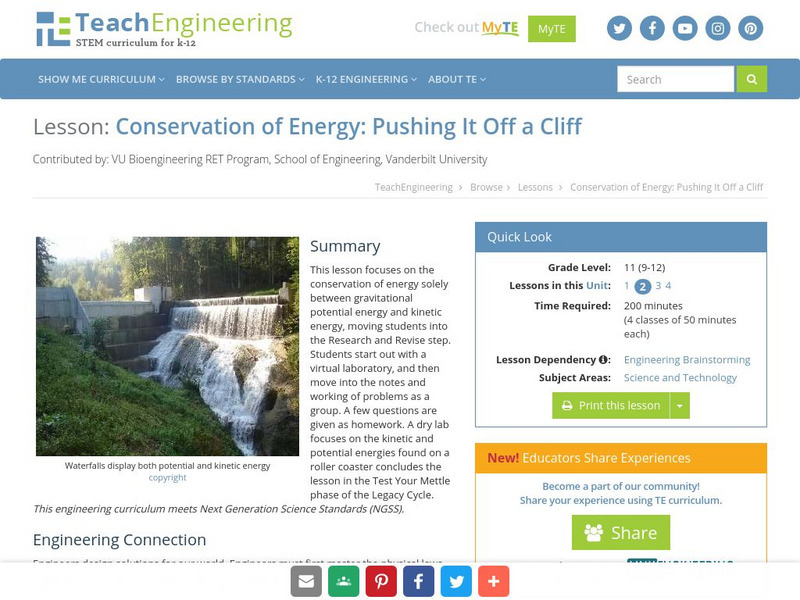


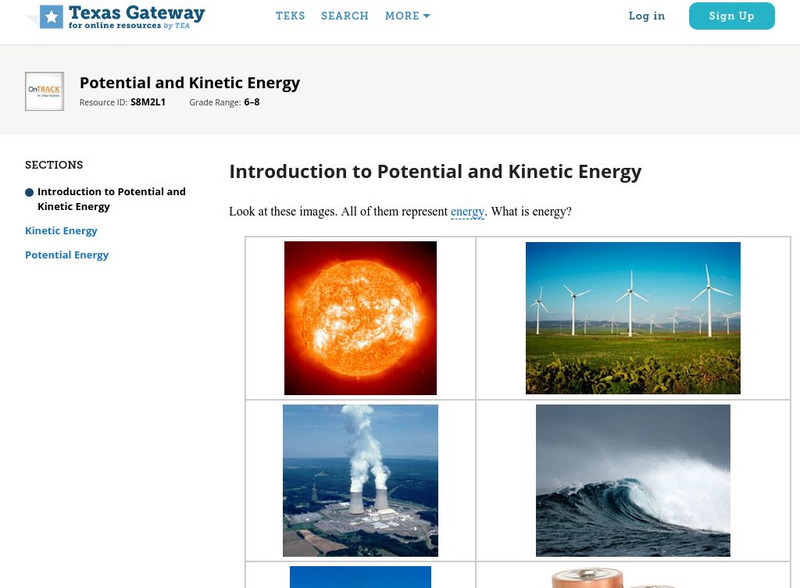
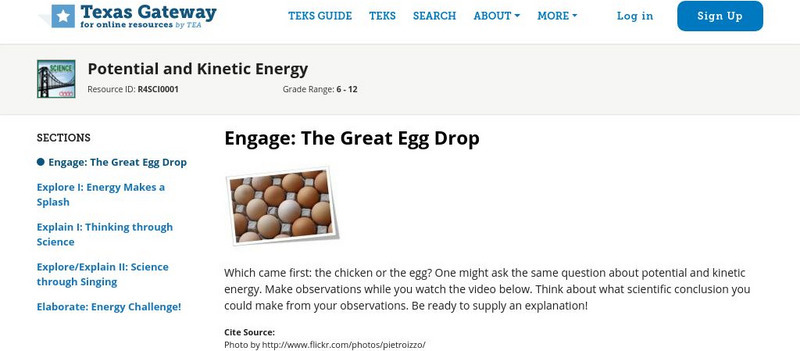



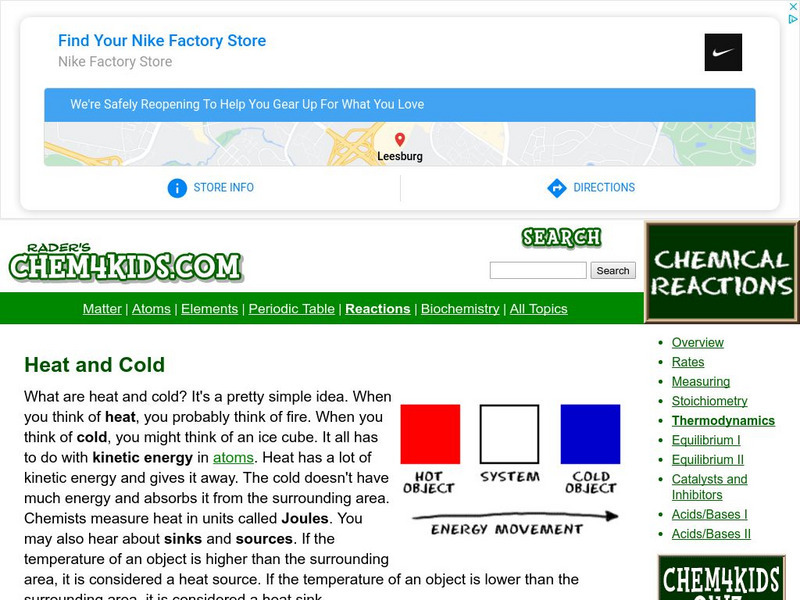
![Pbs Kids: Design Squad Challenge: Paddle Power [Pdf] Activity Pbs Kids: Design Squad Challenge: Paddle Power [Pdf] Activity](https://content.lessonplanet.com/knovation/original/240133-269c480d57012b98a42b2a6067ff8946.jpg?1661182394)


